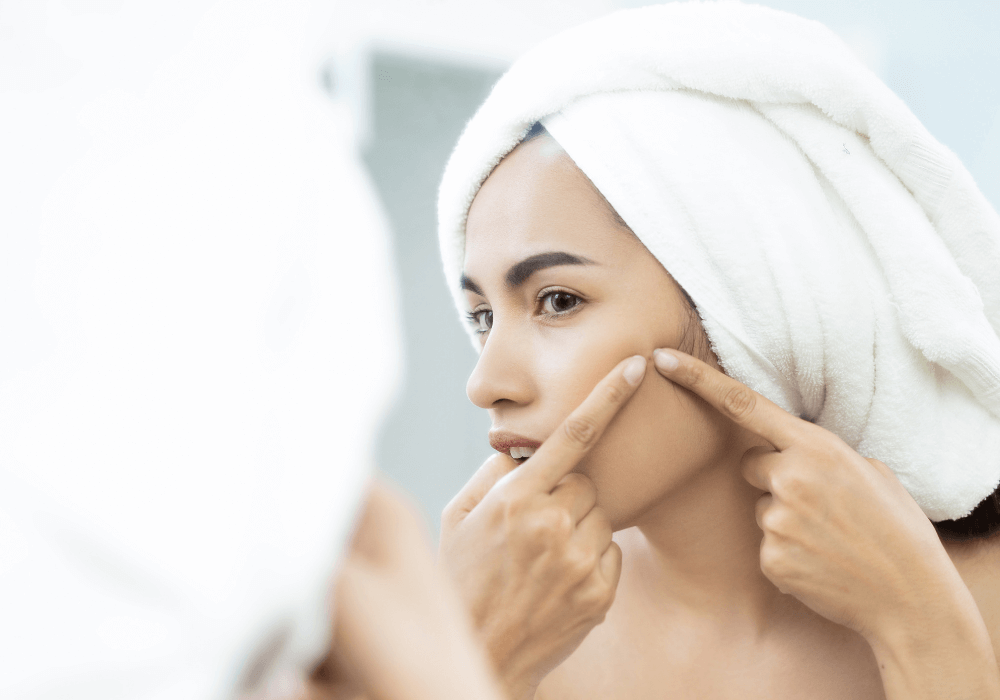Why Acne During Pregnancy Is Common and How to Get Rid of It

Everyone talks about the glow that comes with pregnancy but for many, the increase in oil secretion can cause breakouts, even in women who haven’t had acne for years. There’s no culprit that we can blame for acne during pregnancy, but dermatologists project that these breakouts are caused by the same thing that causes them during teenage years: hormones. Specifically, a hormone called androgens. If you are breaking out during your pregnancy, here’s what you may want to know about how long it will last, why it happens, and how to safely treat it.
When is pregnancy acne most common?
Acne may arise at any point during pregnancy since androgen levels and the resulting increased oil production increase early on in pregnancy. Androgen levels are particularly high during your third trimester so expect that if you are dealing with pregnancy acne that it will be especially bad during this period. Androgens actually help get the cervix ready for labor which is why they increase as you near full term.
The severity of pregnancy acne will vary from person to person. It is, however, more common among women who had acne before becoming pregnant. While having a previous history of acne is the strongest risk factor for pregnancy acne, the underlying causes of acne flare-ups during pregnancy have not been definitively determined.
There are other risk factors besides the increase in androgens that can make you a likely target for pregnancy acne. The immune system plays a part in fighting off acne and during pregnancy, a woman’s immune system is constantly changing and somewhat suppressed. Additionally, the stress that often accompanies pregnancy can increase levels of stress hormones and trigger breakouts or worsen existing acne.
How to safely treat pregnancy acne
If you are looking to treat pregnancy acne, discuss treatment options with your OBGYN, even if they are just over-the-counter products. Many skincare products contain chemicals that can be absorbed into the body and harm your baby. Your OBGYN might offer these as safe alternatives:
- Antibiotics such as clindamycin, which can kill bacteria that causes acne.
- Sulfur-based washes, which often help with skin inflammation.
- Azelaic acid, which is a mild anti-inflammatory acid that can reduce swelling and redness.
But always check with your OBGYN before making any health changes during pregnancy, even with things as seemingly little as skincare.
There’s no definitive timeline for when pregnancy acne will clear up but as the hormones and immune system function returns to normal, the acne will also resolve if it did not exist prior to pregnancy.